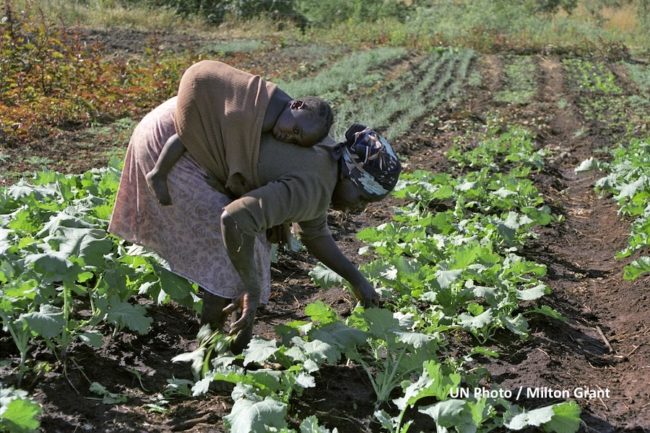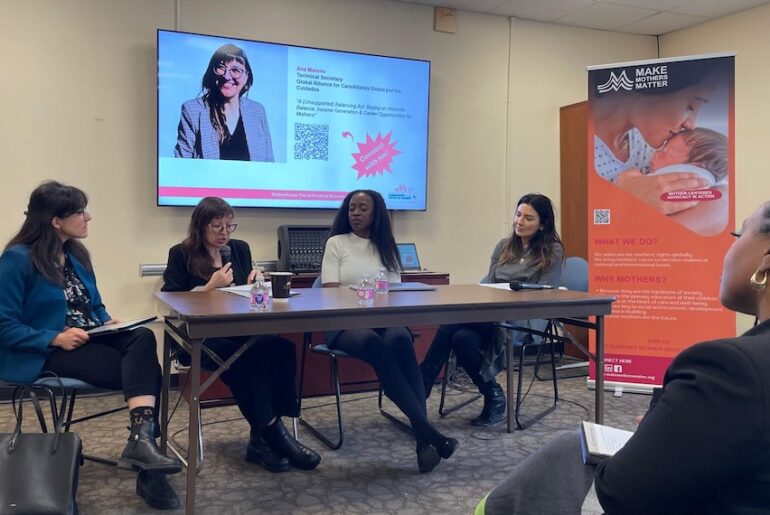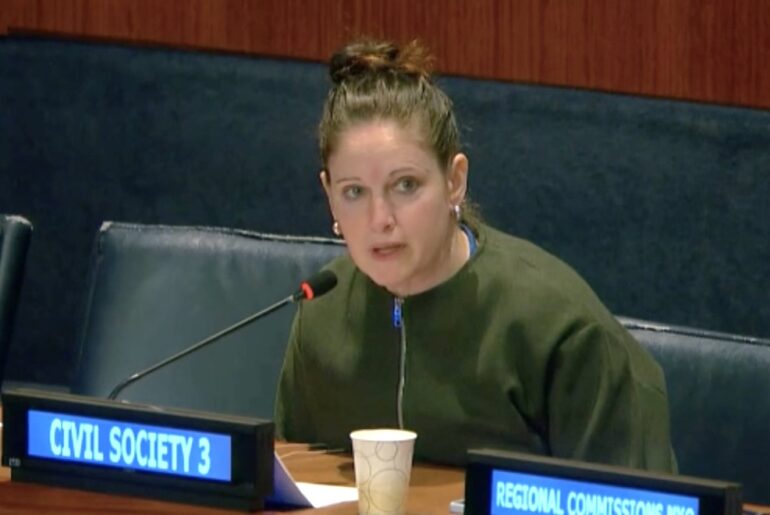Challenges and opportunities for mothers in rural areas
26.01.18
UN New York / 62nd Commission on the Status of Women - Supporting mothers living in rural areas offers the potential for important changes in the context of the 2030 Development Agenda.

Rural women are key actors in agriculture, food security, and more generally sustainable development. Their contributions are however too often unpaid and invisible since they work in family farms or carry out subsistence farming to feed their families – And this work is in addition to domestic duties, and to their work of care and education within the family.
Women living in rural areas face many challenges, especially when they are mothers
These challenges are first linked to the lack of public infrastructure and services like water and sanitation, electricity/energy, transportation, healthcare, etc.. In addition rural women face discriminations linked to access to resources like land, loans and other financial services, modern tools, etc. These challenges, which are also made worse by global economic and food crisis, and by climate change, make mothers and their children particularly vulnerable to poverty.
MMM’s written statement draws attention to all these challenges that mothers face in rural areas, but also to the opportunities: supporting mothers in rural areas offers the possibility for enormous change, specifically in the context of the 2030 Development Agenda and its 17 Sustainable Development Goals.

The 62nd UN Commission on the Status of Women (CSW62) will be held from 12 to 23 March 2018 at UN headquarters in New York. Its main theme: Challenges and opportunities in achieving gender equality and the empowerment of rural women and girls.
The statement was supported by seven others NGOs:
![]() MMM statement submitted in October 2017
MMM statement submitted in October 2017
![]() MMM statement as published by the UN – Ref. E/CN.6/2018/NGO/147
MMM statement as published by the UN – Ref. E/CN.6/2018/NGO/147
Time Poverty and the Motherhood Penalty
Unveiling Economic and Social Injustices
09.07.24
Mothers play an essential role in families by ensuring their loved ones are nourished, educated, and healthy, but their unpaid care work often leads to economic and social injustices, known
Envisioning care as a common thread to global crises
29.07.24
UN New York - Our virtual HLPF side-event brought together experts to shed light on how the various global crises we face (in particular climate change and other environmental crises,
We call for multi-stakeholder approach to recognise and support unpaid care work
21.07.24
UN New York - Participating in the meeting of the UN Economic and Social Council (ECOSOC) on care and support systems, MMM reaffirmed the principle of co-responsibility, which should underpin








